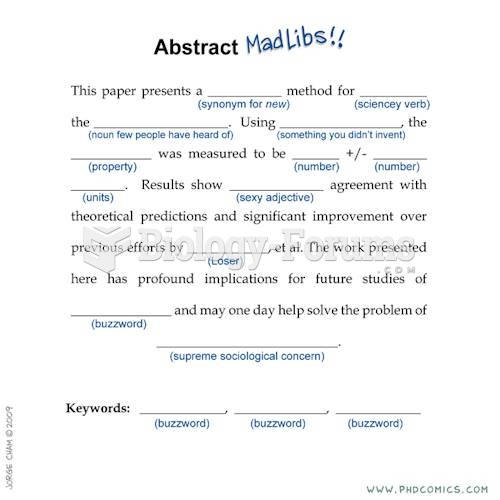|
|
|
Thyroid conditions may make getting pregnant impossible.
A recent study has found that following a diet rich in berries may slow down the aging process of the brain. This diet apparently helps to keep dopamine levels much higher than are seen in normal individuals who do not eat berries as a regular part of their diet as they enter their later years.
Oxytocin is recommended only for pregnancies that have a medical reason for inducing labor (such as eclampsia) and is not recommended for elective procedures or for making the birthing process more convenient.
Methicillin-resistant Staphylococcus aureus or MRSA was discovered in 1961 in the United Kingdom. It if often referred to as a superbug. MRSA infections cause more deaths in the United States every year than AIDS.
Cyanide works by making the human body unable to use oxygen.
 Deserts differ across the world. (a) Acacia trees between a gravel plain and sand dunes in the Namib
Deserts differ across the world. (a) Acacia trees between a gravel plain and sand dunes in the Namib
 C:N ratios differ a great deal among the tissues of pines and between the woody tissues of pines and
C:N ratios differ a great deal among the tissues of pines and between the woody tissues of pines and






